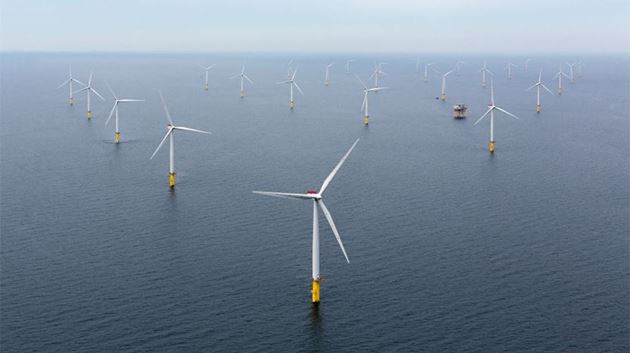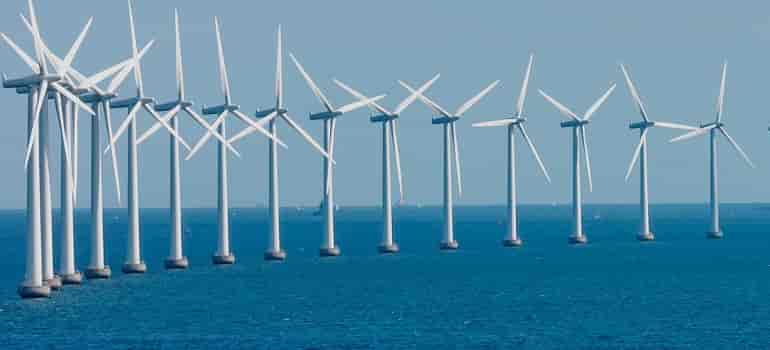
Siemens Gamesa’s performance in the second quarter of FY 2020 (January-March) reflected the unexpected effect of the COVID-19 pandemic on its operations and commercial activity, with a direct impact of €56mn on the company’s profitability. This complicated situation further intensified the challenges in the onshore business, mainly in the Indian market and the execution of projects in Northern Europe.
Siemens Gamesa reacted rapidly to address this unprecedented crisis and to safeguard the health and safety of its employees and the communities where it operates. The company enacted strict health and safety protocols ahead of official guidelines, both at plants and offices, and applied new solutions to assure operations continue – including re-routing certain supply chains, optimizing remote monitoring to guarantee service operations and, in Offshore, extending periods for maintenance teams working at sea. The company has also maintained a sound liquidity position, with credit lines amounting to €4.0bn, against which it has drawn just €1.1bn.
Although the lack of short-term predictability has led the company to withdraw the guidance it issued in the first quarter of 2020, the long-term prospects for the industry and Siemens Gamesa remain sound. The company registered a record order backlog of €28.6bn (+21% YoY) and is well positioned to take advantage of sector growth outlook thanks to its geographical diversification and leadership in technology. According to the International Energy Agency, renewables will account for two-thirds of total capacity installed by 2040, with a sustained level of installations averaging 57 GW per year.
In this context, Markus Tacke, CEO of Siemens Gamesa, called for a green recovery:
“We are experiencing a situation without precedent that has changed our lives in just weeks. Siemens Gamesa considers that the renewables industry must play a key role in the economic recovery to move towards a sustainable energy model that generates quality jobs. It is in our hands to avoid another crisis: the climate crisis,” said Markus Tacke, CEO of Siemens Gamesa.
“I would like to thank all our employees for keeping our business running and enabling us to continue serving our customers despite the difficulties. My most sincere gratitude for the responsibility and courage they demonstrate on a daily basis,” he added.
Commercial activity
Siemens Gamesa ended the first half of its fiscal year (October 2019 – March 2020) with a record order book: €28.6bn (+21% YoY), which sustains good long-term prospects. This figure was achieved after signing €6,830mn (+36% YoY) in the first half and integrating the Service assets acquired from Senvion. Order intake between January and March amounted to €2,203mn (-11% YoY), reflecting the normal volatility of the Offshore market and the impact of COVID-19 on the signing of Onshore contracts, some of which were deferred to subsequent quarters.
Onshore order intake in the last twelve months increased to 9,485 MW (13% YoY) despite the 6% YoY reduction in the second quarter to 1,645 MW.
Offshore order intake in the last twelve months increased by 56% YoY to 2,879 MW. In the second quarter, the company signed a preferred supplier agreement with Ørsted for the Borkum Riffgrund 3 (900 MW) and Gode Wind 3 (242 MW) wind farms, raising the conditional pipeline to 10.7 GW. Siemens Gamesa is the clear leader in this segment, with firm orders for 5.5 GW.
Service performed extraordinarily well, boosted by the Senvion deal, having logged €3,870mn in orders in the last twelve months (+75% YoY), and €779mn in orders in the second quarter (+4% YoY).
Revenues and profitability affected by the coronavirus
Despite the strong commercial activity in the quarter, the expansion of the coronavirus was reflected in the company’s revenues and returns. Revenues fell by 8% between January and March, to €2,204mn, affected by lower sales of wind turbine generators. Revenues in the first half amounted to €4,204mn (-9.6% YoY).
EBIT pre PPA and before integration and restructuring costs amounted to €33mn in the quarter, with an EBIT margin pre PPA and before integration and restructuring costs of 1.5%. The decline in profitability includes the €56mn direct impact of the coronavirus (equivalent to 2.5% of revenues in the quarter) as well as additional costs derived from the slowdown in the Indian market and in the execution of projects in Northern Europe, partially offset by the agreement between Areva and Adwen to resolve all disputes, obligations and liabilities and any past, present and future claims between them. EBIT pre PPA and before integration and restructuring costs amounted to €-103mn in the first half, equivalent to a margin of -2.5% of revenues.
In this context, the company booked losses of €165mn in the second quarter, and €339mn in the first half.

